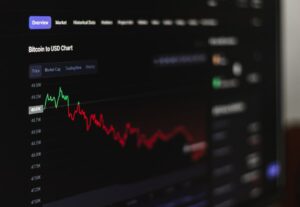Mastering Forex Strategy: Tips and Tricks for Successful Trading
Forex trading, also known as foreign exchange trading, is a decentralized global market where the currencies of different countries are traded. It is one of the largest and most liquid financial markets in the world, with trillions of dollars being traded daily. However, navigating the forex market successfully requires more than just luck. It requires a well-thought-out strategy and a deep understanding of the market dynamics. In this article, we will explore some essential tips and tricks that can help you master forex trading.
1. Educate Yourself: The first step towards mastering forex trading is to educate yourself about the market. Understand the basic concepts, terminologies, and different trading strategies. There are numerous resources available online, such as books, courses, and webinars, that can help you gain a solid foundation in forex trading. Take the time to learn and practice different strategies before risking your hard-earned money in the market.
2. Develop a Trading Plan: A trading plan is a blueprint that outlines your trading goals, risk tolerance, and trading strategies. It acts as a guide that helps you make rational and disciplined trading decisions. Your trading plan should include entry and exit points, money management rules, and risk management strategies. Stick to your plan and avoid making impulsive decisions based on emotions or market rumors.
3. Use Technical Analysis: Technical analysis involves studying historical price data and using various indicators and chart patterns to predict future price movements. It helps traders identify trends, support and resistance levels, and potential entry and exit points. By incorporating technical analysis into your trading strategy, you can make more informed trading decisions and increase your chances of success. However, remember that technical analysis is not foolproof and should be used in conjunction with other forms of analysis.
4. Stay Updated with Fundamental Analysis: Fundamental analysis involves analyzing economic indicators, news events, and geopolitical factors that can impact currency prices. Stay updated with economic calendars and news releases that can affect the forex market. Factors such as interest rate decisions, GDP growth, and political stability can have a significant impact on currency values. By understanding the fundamental factors driving the market, you can make more accurate predictions and adjust your trading strategy accordingly.
5. Manage Your Risk: Risk management is a crucial aspect of successful trading. Never risk more than you can afford to lose. Use stop-loss orders to limit your losses and take-profit orders to secure your profits. Diversify your portfolio by trading multiple currency pairs and consider using risk-reward ratios to ensure your potential profits outweigh your potential losses. Additionally, avoid overtrading and resist the temptation to chase short-term gains. A disciplined approach to risk management can protect your capital and enhance your long-term profitability.
6. Embrace Emotional Discipline: Emotions such as fear and greed can cloud your judgment and lead to poor trading decisions. Successful traders have the ability to control their emotions and stick to their trading plan, even during volatile market conditions. Develop emotional discipline by practicing meditation, setting realistic expectations, and avoiding impulsive trading. Remember, forex trading is a marathon, not a sprint. Patience and consistency are key to long-term success.
7. Utilize Demo Accounts: Most forex brokers offer demo accounts that allow you to practice trading with virtual money. Utilize these accounts to test different strategies, refine your skills, and gain confidence in your trading abilities. Treat your demo account as seriously as you would a real account, and evaluate your performance objectively. Only switch to a live account when you are consistently profitable and confident in your trading strategy.
In conclusion, mastering forex trading requires a combination of knowledge, discipline, and experience. Educate yourself, develop a trading plan, and incorporate both technical and fundamental analysis into your strategy. Manage your risk effectively, stay emotionally disciplined, and utilize demo accounts to practice and refine your skills. Remember, forex trading is not a get-rich-quick scheme. It requires time, effort, and continuous learning. With the right strategy and mindset, you can achieve success in the forex market.






